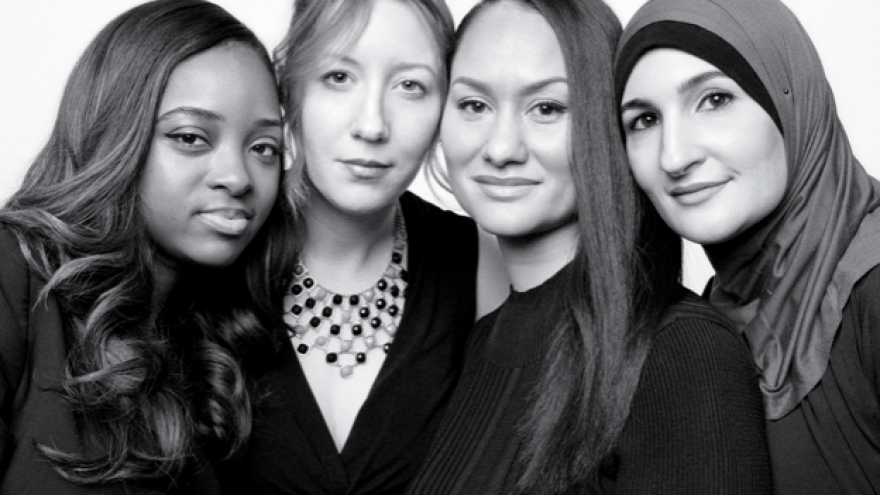Ever since it took the nation by storm, a dark cloud has been hanging over the Women’s March concerning its leadership’s associations with controversial Nation of Islam leader Louis Farrakhan, anti-Semitism, and other troubling speech against segments of the population. On Nov. 19, the movement’s founder called on its leaders to quit.
“As Founder of the Women’s March, my original vision and intent was to show the capacity of human beings to stand in solidarity and love against the hateful rhetoric that had become a part of the political landscape in the U.S. and around the world,” Theresa Shook wrote in a Facebook post.
The Women’s March movement began as a reaction to the election of U.S. President Donald Trump in 2016 as opposition to his positions on women’s rights, as well as on other issues such as LBGTQ rights, racial equality, gender equality, disability rights, the environment and other progressive causes. Millions turned out in marches across America the day after Trump’s inauguration, and the movement has since continued with chapters across the United States and the world, organizing and holding events and rallies, as well as celebrities and others continuing to speak on the movement’s ideals.
After the announcement, groups such as the Zioness Movement—a progressive female Zionist organization—applauded Shook’s statement.
“Zioness shares Shook’s sentiment that it is high time for new leadership at a movement created to stand in love and solidarity against hate,” the group said in a statement. “Since our founding in 2017, Zioness has spoken out time and again against the poisonous and deeply hurtful rhetoric and actions of certain Women’s March leaders.
After our experience building the Zioness movement for the last eighteen months, we know that the vast majority of American Jewish women agree: it’s not just possible, but essential for Jewish organizations to be both proudly progressive and Zionist. We don’t have stand silent in the face of bigotry.”
While the Women’s March was founded in opposition to Trump’s policies and views, many feel the leadership of the movement has taken it in the wrong direction. In particular, Women’s March co-chair Linda Sarsour, a Palestinian American, has been an outspoken critic of Israel and has supported the BDS movement; the Anti-Defamation League says her BDS advocacy “encourages and spreads anti-Semitism.” Similarly, Tamika Mallory, another co-chair of the Women’s March, has been closely aligned with Farrakhan.
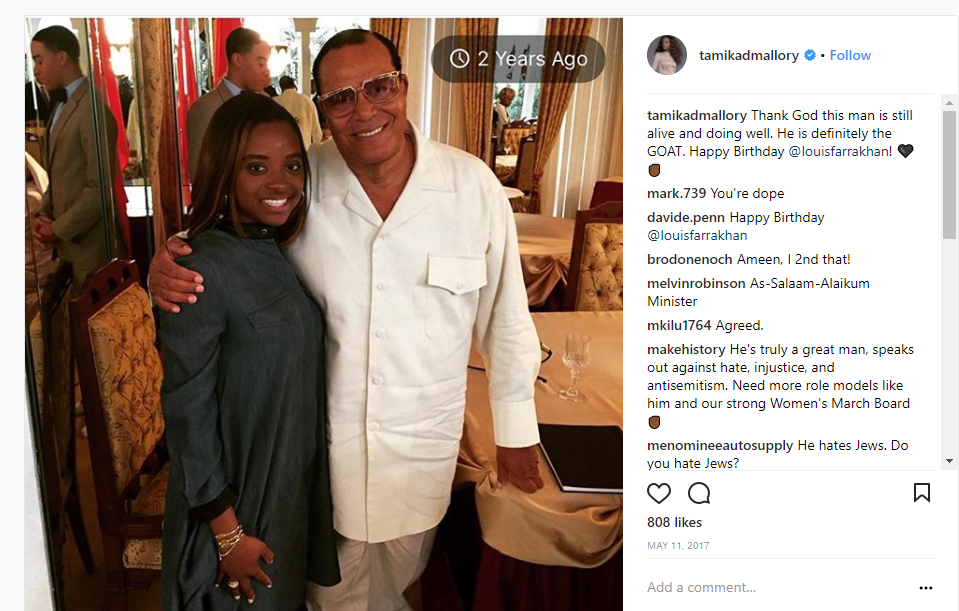
Both Sarsour and Mallory have been repeatedly slammed for praising Farrakhan, a known anti-Semite whose annual Saviour’s Day was attended last February by Mallory, where Farrakhan said “the powerful Jews are my enemy.”
In the wake of the Pittsburgh synagogue shooting in October, scrutiny over anti-Semitism within the leadership of the Women’s March began to increase. Actress Alyssa Milano, a prominent member of the #MeToo movement, and actress Debra Messing said they would not speak at the next Women’s March because of Sarsour and Mallory’s refusal to distance themselves from Farrakhan.
“Any time that there is any bigotry or anti-Semitism in that respect, it needs to be called out and addressed. I’m disappointed in the leadership of the Women’s March that they haven’t done it adequately,” Milanosaid in a November interview.
Tablet recently published an extensive history of the Jew-hatred behind the movement.
‘Deplores the anti-Semitic and anti-Israel positions’
Betty Ehrenberg, the North America executive director of the World Jewish Congress, condemned the “hijacking” of the movement by anti-Semitic vitriol.
“The WJC, long a defender of the rights of Jews and minorities, with a deep commitment to gender equality, deplores the anti-Semitic and anti-Israel positions expressed by leaders of the Women’s March, namely Linda Sarsour and Tamika Mallory,” she said.
“We believe that this march meant to advance equality for women has become an issue hijacked by those who have repeatedly subjected Israel to baseless condemnation and blame and emphatically associated themselves with a notorious and unrepentant anti-Semite, Louis Farrakhan,” she continued.
“This hijacking, part of a syndrome called ‘intersectionality,’ has sadly been used to mislead and turn people against Israel, the result of a false juxtaposition of the issues of the Middle East conflict and equality for women, leading to the lie uttered by Sarsour, that Zionists cannot be true feminists,” added Ehrenberg. “Israel is to be commended for its safeguarding of democracy and equality for women, and we remain committed to supporting Israel’s efforts to protect the rights of women at all levels of Israeli society.”
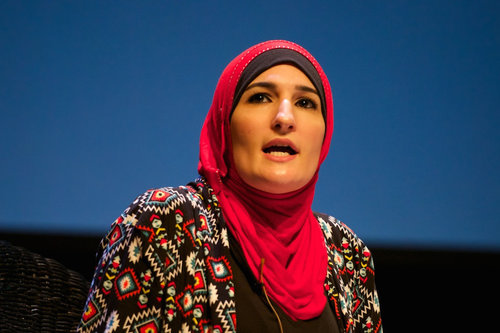
While a growing number of Jewish organizations and activists have expressed concern regarding anti-Semitism within the movement, a number of progressive Jewish groups remain firm in their engagement with the Women’s March.
‘Honored to continue partnering with the Women’s March’
Progressive Jewish groups such as Bend the Arc: Jewish Action defended the movement and said they continue to work with the Women’s March, despite the anti-Semitism controversy.
“The Women’s March movement is powerful, inspiring and urgently needed in this political moment, and we are honored to continue partnering with the Women’s March as we enter 2019,” Stosh Cotler, the organization’s CEO, told JNS.
“At the same time,” she said, “we recognize the deep pain and frustration that some people in our community are feeling around these recent discussions about anti-Semitism; we acknowledge those raw feelings while also affirming our belief that we can have disagreements with each other or with our allies while continuing to build the intersectional movement this moment requires.”
“We are saddened that the focus on Louis Farrakhan, who is not part of the Women’s March and whose abhorrent views on Jewish and LGBTQ people are wholly outside those of the movement, serves as a distraction from a far bigger threat to all of our safety: the growth of violent white nationalism, emboldened by this president [U.S. President Donald Trump] and his enablers in Congress,” continued Cotler.
“Bend the Arc believes that we must collectively remain focused on the threat of this expanding white-nationalist movement and recognize that our safety relies on the strength of our intersectional solidarity,” she added. “For us, this is what the Women’s March represents.”
Similarly, the National Council of Jewish Women (NCJW), which strongly endorsed the Women’s March in January 2017 and continued to support smaller independent women’s marches earlier this year, said it would continue to advise the Women’s March on issues, despite the concerns over anti-Semitism.
NCJW’s agenda “is in complete alignment with the national policy agenda of the Women’s March and the Women’s March movement,” the organization’s CEO, Nancy Kaufman, told the Forward recently.
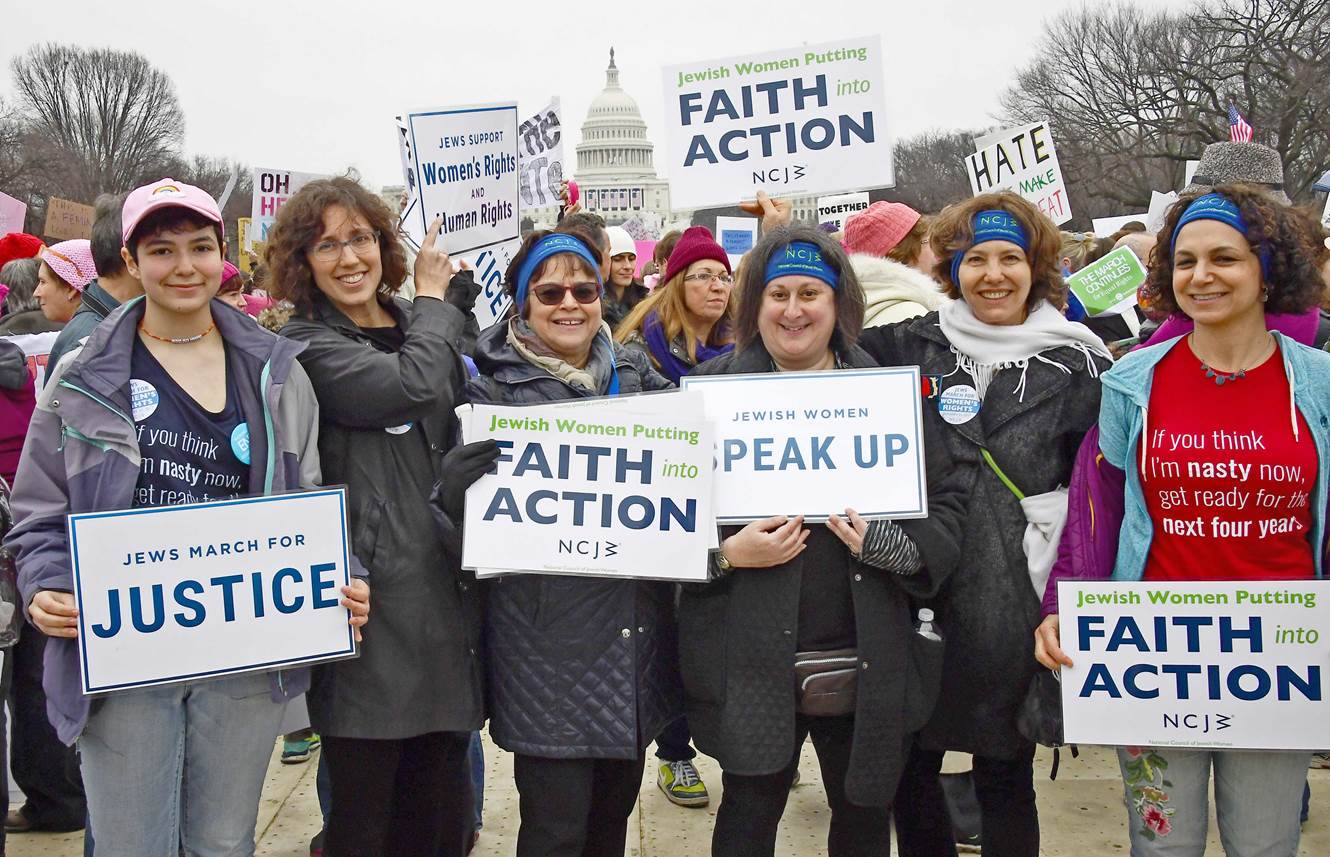
In late November following the resignation by Shook and amid growing concerns over anti-Semitism, Kaufman convened a phone call with dozens of Jewish leaders over the issue and ultimately decided to stand by the Women’s March.
“There’s a deep concern among Jewish leaders of, ‘How do we manage this?’ ” she said, as reported by The Washington Post. “What does it mean to be clear in our fight against anti-Semitism and Islamophobia and women’s rights while also fighting division in (the Women’s March) movement?”
NCJW did not respond to multiple requests for comment on whether it continues work with the Women’s March.
However, Shoshana Bryen, senior director of the Jewish Policy Center, said that the anti-Semitism in the movement cannot be tolerated; therefore, Jewish women and organizations should disassociate from it.
“There is no room for anti-Semites in a group that claims to advance rights for all women. Jewish women, Zionist women and Israeli women must be included,” she said. “Farrakhan has demeaned, diminished and debased Jewish women, and so should be ousted.”
Bryen added, “But if his followers, including Linda Sarsour and Tamika Mallory, remain and do his work outside the March itself, the March remains tainted and Jewish women should remove their support.”
‘We view these developments with feelings of great trepidation’
Some liberal Jewish groups and activists are taking action.
The Women’s International Zionist Organization, a progressive Jewish group, expressed criticism on the Women’s March and announced that on Jan. 9, it will “hold a special meeting on the subject,” according to its founding president.
“We are appalled at the anti-Semitism of some of the leadership of the Women’s March,” said Evelyn Sommer. “As an organization that has been involved in the women’s movement since its inception in the 1970s, we view these developments with feelings of great trepidation.”
Ann Lewis, a board member of Zioness, told JNS that they will no longer participant in events with the Women’s March leaders.
“As Maya Angelou said, when someone shows you who they are, believe them. Zioness will not participate in events associated with the co-chairs of the national Women’s March, Inc. or anyone else who spreads anti-Semitism or associates with anti-Semites.
“We care deeply about progressive issues, and are working closely with others who share our values in social justice spaces, including by hosting a series of teach-ins later this month.”
The Jewish Democratic Council of America said that while it supports the broad goals of the Women’s March, such as gender and racial equality, economic justice, civil rights, religious tolerance and LGBTQ rights, the “clear bias and anti-Semitic views espoused by some of its leaders has unfortunately tainted the effectiveness and inclusivity of the March.”
“The views expressed by the leadership of Women’s March Inc. are diametrically opposed to JDCA’s unequivocal rejection of anti-Semitism, hatred and bigotry in all its forms.”
Citing the close ties of the leaders of the Women’s March to Farrakhan, the group encouraged those who support the ideals of the march “to join in solidarity with other organizations sponsoring women’s marches across the country that have no affiliation with or ties to Women’s March, Inc.”
Susan Tuchman, director of the Center for Law and Justice at the Zionist Organization of America, told JNS “It’s unfathomable that any organization, especially a Jewish organization, could support the Women’s March at this point, given the evidence of its national leaders’ anti-Semitism, Israel-bashing, and tolerance for Jew-hatred – including an alliance with the vicious anti-Semite Louis Farakkhan who compared Jews to termites.”
Tuchman continued: “Unless the current national leaders of the Women’s March are replaced by individuals who make it crystal clear that there will be zero tolerance for anti-Semitism, Israel-bashing and other forms of bigotry, it’s incomprehensible that Jews – or non-Jews – would endorse participating in the Women’s March.”
“There are many other ways to come together and express our support for women’s equality, that aren’t tarnished by hatred of Jews and Israel,” she said.
Time to end the patriarchal leadership of the ‘Farrakhan Four’
Meanwhile, other Jewish women are taking their own initiative.
An offshoot group called the WoMen For All was founded this year by Nisi Jacobs in response to the anti-Semitism allegations against the original Women’s March, “as an inclusive, grassroots, women’s rights movement advocating against all forms of bigotry, hate and prejudice, and advocating for equality for all,” according to WMFA’s mission statement.
We are working to “solidify the original cause of the Women’s March movement, which was focused on women’s rights, the movement was never about the Israel or the Israeli-Palestinian conflict. Now it seems that it has become all about that because of the bigoted leadership,” Jacobs told JNS. “Originally, it was all about women’s equality and that is what we are working for.”
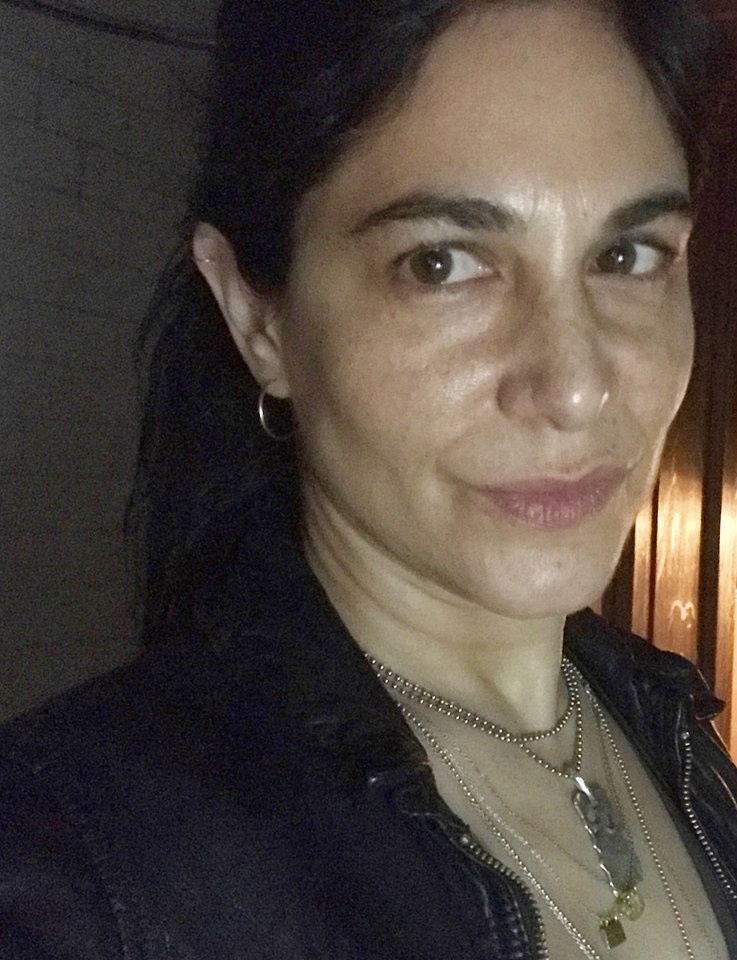
Jacobs said that leadership of the Women’s March, whom she dubbed the “Farrakhan Four” has been “taking a patriarchal model of using women’s work, taking credit for it, and not paying them for their work and time. Then leaving them to be invisible. It is a very old part of the patriarchy that we are trying to change.”
“Solitary women who are grouping together in an unglamorous sisterhood network that are doing tremendous about of labor. They are taking care of their family, working and doing this activism for free. Their work gets co-opted by these four leaders who collect all the merchandise money from the branding. The branding has been the one message they used to silence these women up till now because it has brought status and professionalism in eyes of the world.”
As such, WoMen For All has created a “sister march network” for local leaders to advertise their marches. Her group has also launched a petition calling on the Democratic National Committee and the Republican National Committee to officially adopt the International Holocaust Remembrance Alliance (IHRA) definition of anti-Semitism.
“Our group is saying that grassroots and local leaders of the Women’s March are how we have flipped the House [of Representatives] and gotten more woman than ever into office. It wasn’t by a top-down structure, but a bottom-up structure. Let’s flip the paradigm; let’s cut out this patriarchal paradigm of Women’s March national taking credit, and instead shine the light on these local groups who are out there taking a chance and standing by their morals and values.”


























